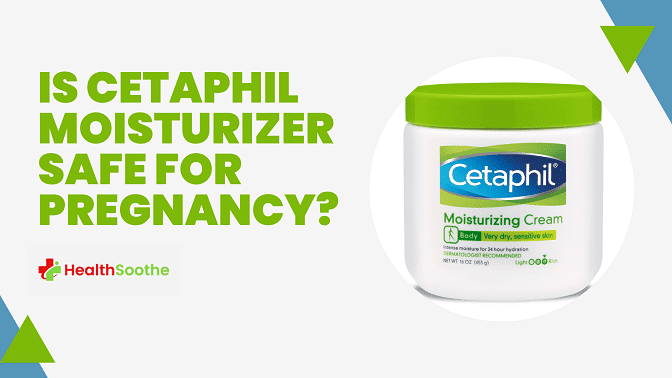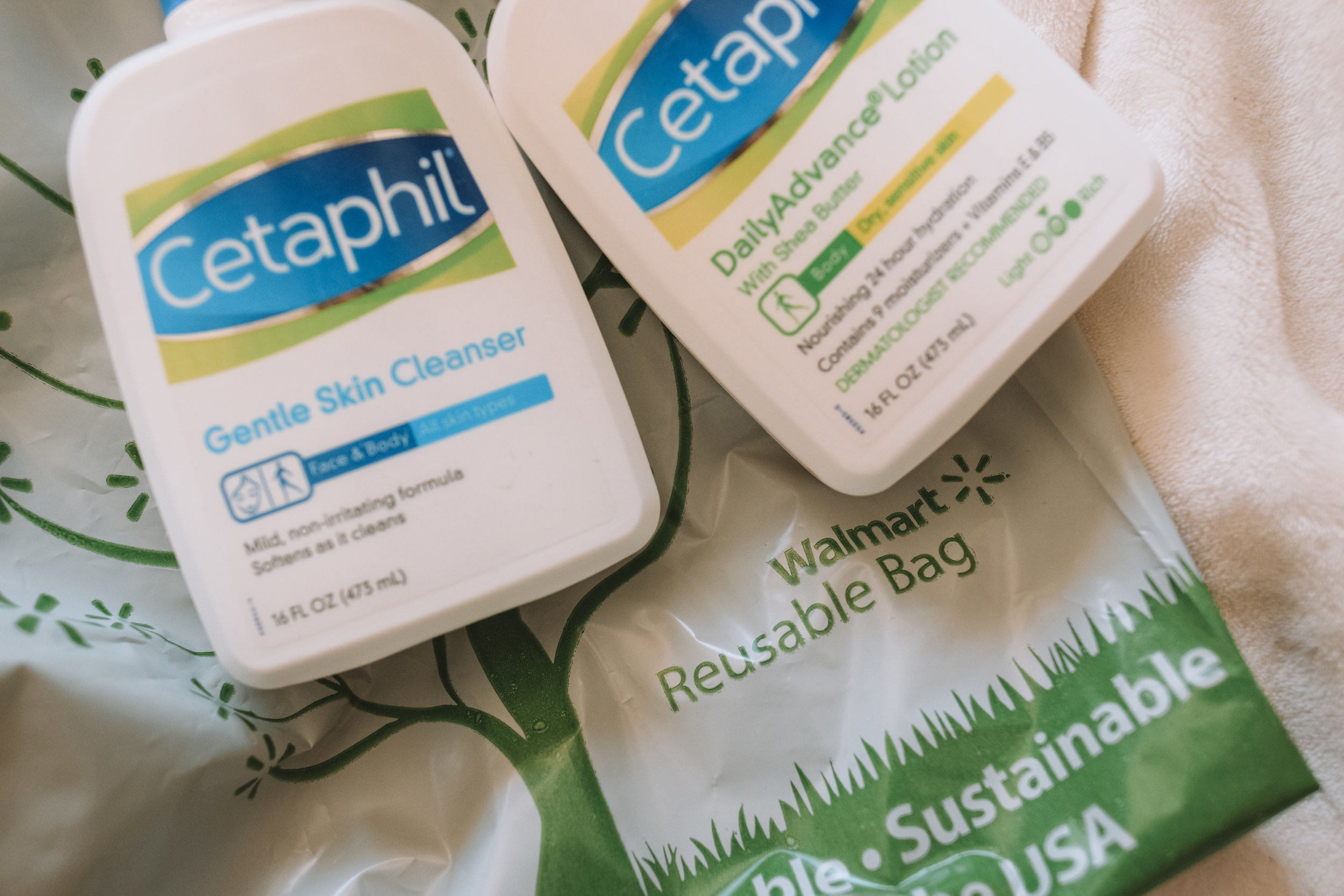What’s the best moisturizer to use when you’re pregnant? That’s a question many expectant mothers ask, and the answer isn’t always as straightforward as you might think.
We turned to board-certified dermatologist Dr Anne Chapas, MD, to find out whether any moisturizers can be used safely during pregnancy and why choosing the right one can be so tricky.
Here are her expert tips on how to keep your skin healthy during pregnancy — and which moisturizers you can trust in those nine months.
Is Cetaphil moisturizer safe for pregnancy?

According to Danielle Ramo, MD, board-certified Dermatologist at Washington Institute of Dermatologic Laser Surgery and Krieger School of Arts and Sciences at Johns Hopkins University, using Cetaphil moisturizer during pregnancy is fine.
Cetaphil is recommended by some dermatologists because it's gentle, Dr Ramo says. That doesn't mean you should neglect your skincare routine though: Your skin still needs its regular cleansing and protection from sun exposure even when you're pregnant.
If you want an even more straightforward recommendation from Dr Ramo, she recommends CeraVe PM Facial Moisturizing Lotion (SPF 30) as another great option.
It’s fragrance-free so won’t bother your nose and contains hyaluronic acid which helps lock in moisture, she says. It also has ceramides which help protect against water loss.
This one isn't scented either but does have a slight medicinal smell that can be off-putting if you're sensitive to smells—so if that's you, try looking for one with fragrance added or go with something unscented like Cetaphil or Cerave products mentioned above. You'll find them all at Target!
How does Cetaphil work?
Cetaphil Moisturizing Lotion is fragrance-free, soap-free, oil-free and non-comedogenic. It has emollients that keep skin soft and smooth, like dimethicone, stearyl alcohol and glycerin.
Dimethicone is an ingredient that helps condition skin by creating a thin film on your skin's surface; it provides moisture and is known as an occlusive. Stearyl alcohol is derived from coconut oil and can provide additional lubrication.
Glycerin is a natural humectant (it attracts water from its surroundings), which helps prevent dryness while also preventing water loss through evaporation. — Dr Jeannette Graf
Which Cetaphil products are best for pregnancy?
My general rule of thumb is to use products on my face and body that are made specifically for my skin type.
In most cases, these products contain less harsh ingredients, so they’re less likely to cause reactions or rashes.
Having said that, there’s nothing wrong with using Cetaphil facial cleanser and lotion if you’re pregnant; it was designed with sensitive skin in mind.
That said, I have seen patients who have had negative reactions while using various types of Cetaphil products during their pregnancies.
This can be frustrating because one woman may say she has no issues with a certain product while another will complain of an uncomfortable rash or burning sensations after using it.
Ingredients of Cetaphil
Every product has an ingredient list. It’s important to check out what you’re putting on your skin, and why.
The first three ingredients of Cetaphil Moisturizing Lotion are water, cetyl alcohol and stearyl alcohol.
These are all emollients that smooth skin while also locking moisture in so it won’t evaporate as quickly (that’s where moisturizing comes from).
Alcohol is another active ingredient, though if you think of it like witch hazel—which is also derived from plants but used as an astringent—it won't feel that way when you apply it.
What about those dermatologists' recommended claims on some products?
Are there any safety concerns with Cetaphil during pregnancy?
Dr Rebecca Baxt, founder of DermClinica in NYC (and board-certified in both dermatology and paediatrics) tells Allure that there are no known safety concerns with Cetaphil during pregnancy, especially when it's used as an emollient post-shower or bath.
Cetaphil is very gentle and soothing, she says. Because it has no added fragrances, colours, or dyes — all of which can irritate sensitive skin — it's perfectly suitable even for new moms-to-be whose skin may be more sensitive than usual.
If you're concerned about using any products on your body during your first trimester (the most crucial part of early development), Dr.
What about skincare after childbirth?
If you’re breastfeeding, you can continue using Cetaphil gentle cleanser.
For other parts of your body, talk with your doctor about what would be best; generally speaking, soap is OK but avoid products that contain fragrances or scents since these may cause problems with milk supply and/or irritate the skin.
The American Academy of Dermatology recommends physiologic lotions and creams containing oil-in-water emulsions, which are easily spreadable on dry skin without leaving a greasy feeling for postpartum skin care.
If you have especially sensitive skin or eczema, Dr Strom says to look for products labelled fragrance-free, hypoallergenic, non-comedogenic (meaning they won't clog pores), and free of dyes and preservatives.
Products like Vaseline Intensive Care Advanced Repair Lotion ($5) fit all those criteria.
My name is Wisdom Bassey, I’m a blog content writer and graphic designer who provides support and services for brands and different companies. I’m young and versatile, A tech enthusiast. I carry out deep research on every topic I choose to write about. You can reach me through my social media handles, I’m always available and ready to connect.
The content is intended to augment, not replace, information provided by your clinician. It is not intended nor implied to be a substitute for professional medical advice. Reading this information does not create or replace a doctor-patient relationship or consultation. If required, please contact your doctor or other health care provider to assist you to interpret any of this information, or in applying the information to your individual needs.



